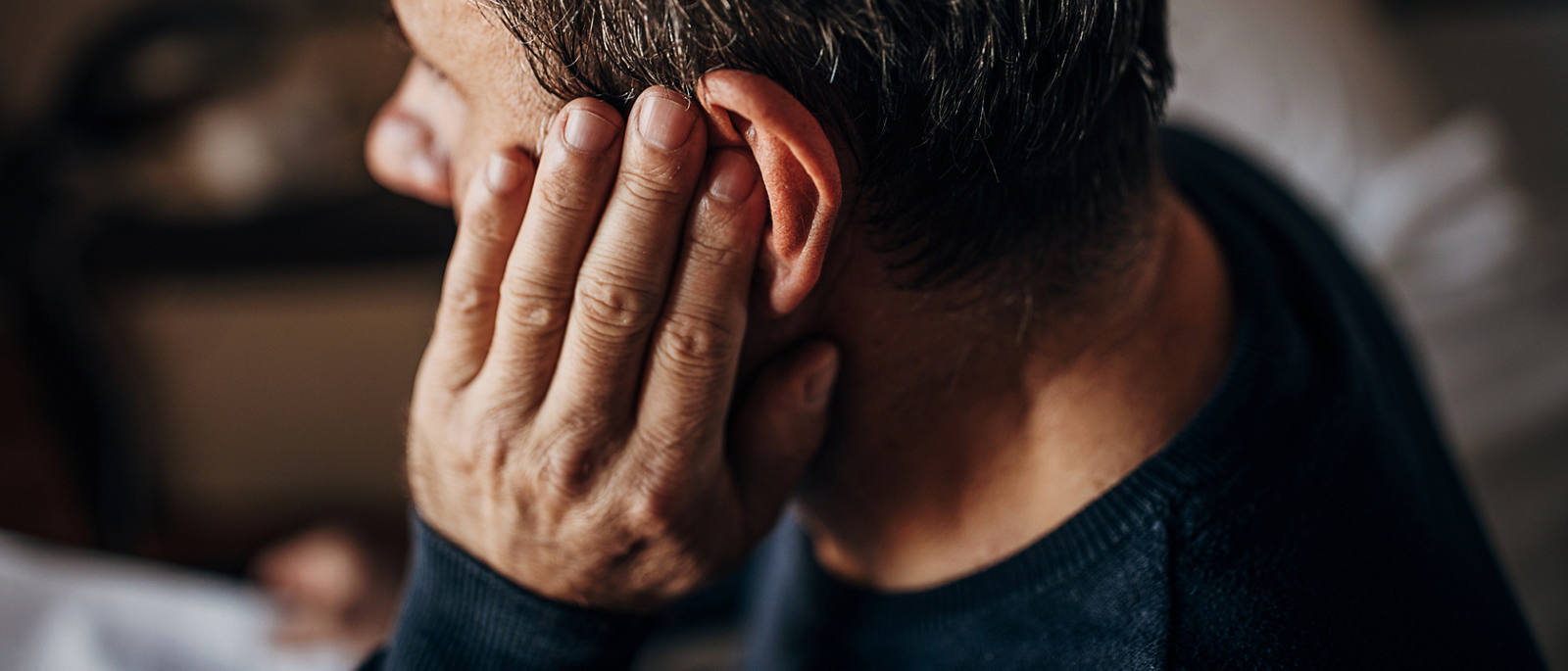Tinnitus: what types exist and can they be cured?

While acute tinnitus can usually be successfully treated, a cure for chronic tinnitus is rather unlikely. Nevertheless, various treatment methods exist that can help patients learn to live better with the noise in their ears.
What is tinnitus?
More than one-third of people experience a permanent or temporary noise in their ears which, in most cases, isn't heard by other people and the cause of which often remains unclear.
Tinnitus symptoms
Whistling, hissing, buzzing, humming or ringing: the noises can vary from person to person. The main symptoms include:
- thumping, tapping, buzzing or hissing
- whistling, squeaking, ringing
- whooshing, whizzing
The most common symptom of chronic tinnitus is a high-pitched whistle. The sound is continuous, pulsating, or rising and falling in intensity, and massively reduces a person’s quality of life.
Can tinnitus be cured?
To answer the question of whether tinnitus can be cured, a distinction must be made between the types.
Subjective vs objective tinnitus
Most people suffer from subjective tinnitus. This is when only the patient hears the unwanted noise. Subjective tinnitus can be treated in the acute phase with infusions and medication.
The much rarer type of tinnitus is objective tinnitus. With this type, the noise comes from the patient's own body and can also be heard by outsiders. Here, a cause can be identified which can then be correspondingly treated with medication or an operation.
Acute tinnitus
Experts also distinguish between acute and chronic tinnitus. In the acute phase, tinnitus is treated like sudden deafness. Tinnitus is considered acute for a period of 3 months.
Cure for acute tinnitus
Acute tinnitus usually disappears without complications after the root cause has been successfully treated.
Chronic tinnitus
Chronic tinnitus, on the other hand, is when the whistling or hissing lasts longer than three months. What’s more: there’s usually no physical damage because the disturbance forms in the brain. However, this doesn't mean that sufferers are imagining what they hear; rather, they have a perception problem. As the brain tries to compensate for the disorder, activity in the auditory pathway increases which patients perceive in the form of the noise.
The noise originates in the brain, while damage to the ear can no longer be detected.
Tinnitus due to stress
Why the chronic whistling is perceived as louder when the patient is under stress or psychological strain hasn't been clearly explained. One reason might be that the brain compensates for the disorder in the limbic system, which is the part of the brain responsible for our emotions.
Can chronic tinnitus be cured?
So far, no universal therapy has been found to cure chronic tinnitus. Often the cause remains unknown, which makes precise treatment difficult. However, therapies are available which can at least help patients live better with it.
Possible treatment options for chronic noise in the ears
In any case, it's clear that chronic tinnitus can be extremely stressful and drive patients to despair. When the noise in the ears severely impairs a person’s quality of life, and when work, family and hobbies suffer, Rahul Gupta advises treatment. However, the idea isn't to get rid of the tinnitus, as this only succeeds in exceptional cases.
Inpatient treatment in a tinnitus clinic
The treatment generally consists of various elements:
-
relaxation techniques
-
cognitive behavioural therapy
- alternative healing methods such as acupressure
Getting used to the noise
Over the course of a few weeks in the clinic, patients are taught to reframe their negative perception and accustom themselves to the noise sufficiently enough that daily life becomes more manageable. “A large proportion of patients feel better afterwards,” says Rahul Gupta. In the long run, however, they will only live better with the intrusion if they strictly apply what they have learned at home too.
Tinnitus noise device as a therapy option
A tinnitus noise device can be used as a treatment for tinnitus. This causes a steady, quiet noise that is quieter than the tinnitus itself. In a first step, the brain should learn to classify and accept the noise of the device and in a second step, the noise of the tinnitus as unimportant. Such a device is already integrated into many modern hearing aids.
“Tinnitus retraining therapy”
This kind of therapy covers four areas:
- explanation of the disease
- psychological counselling
- relaxation methods
- use of devices that produce sounds to mask the tinnitus
Psychotherapy can be a helpful treatment method
Tinnitus also activates the areas of the brain that generate emotions. This is why tinnitus patients often suffer from anxiety disorders or depression. In such cases, it’s advisable to also consult a psychotherapist or neurologist.
Causes of tinnitus
An estimated 800,000 people in Switzerland suffer from tinnitus. Possible triggers include:
- sudden deafness
- blast injuries (the high sound pressure of fireworks or nearby lightning damages the sensory cells in the inner ear)
- tense jaw muscles due to night-time teeth grinding
- devices designed to scare off martens or cats if the sound of such devices is in a range audible to humans (set the frequency to at least 21 kilohertz or higher)
When to see a doctor
To avoid chronic tinnitus that can no longer be cured, it pays to see a doctor as soon as possible after first perceiving the noise in your ears. Tinnitus experienced for the first time can usually be resolved with treatment that addresses the root cause.






